Black soap is a beauty product with AMAZING benefits! Originating in West Africa, you’ll be amazed at everything that African black soap can do for your skin.
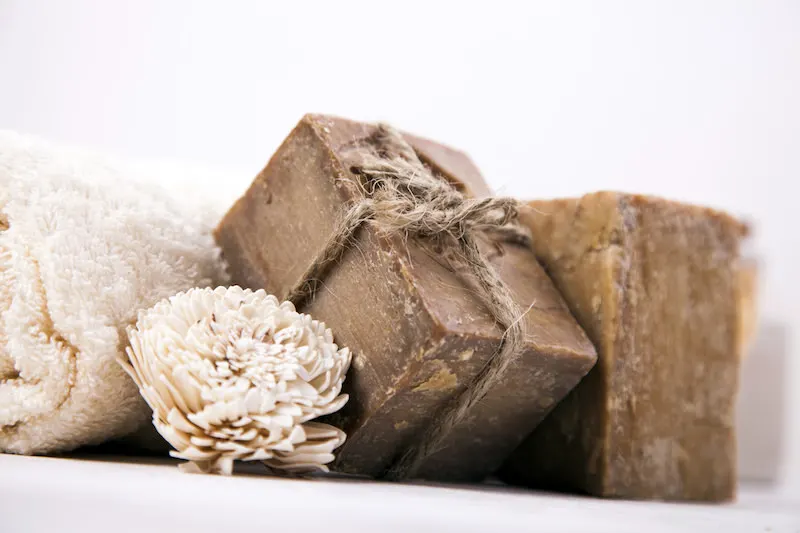
Have you ever gone on what I like to call an “internet tangent?” You know – when you’re interested in a topic and you head down the rabbit hole of discovery, until your curiosity is satisfied.
That happened to me recently with a beauty product: African black soap.
You might think I’ve been under a rock, but I’d not heard of black soap until last year. One thing that intrigued me about this product is everything it can do for the skin. Which sounds like terminology used in an infomercial, to be honest.
“Look at everything this product can do for the skin!” said everyone ever trying to sell a beauty product.
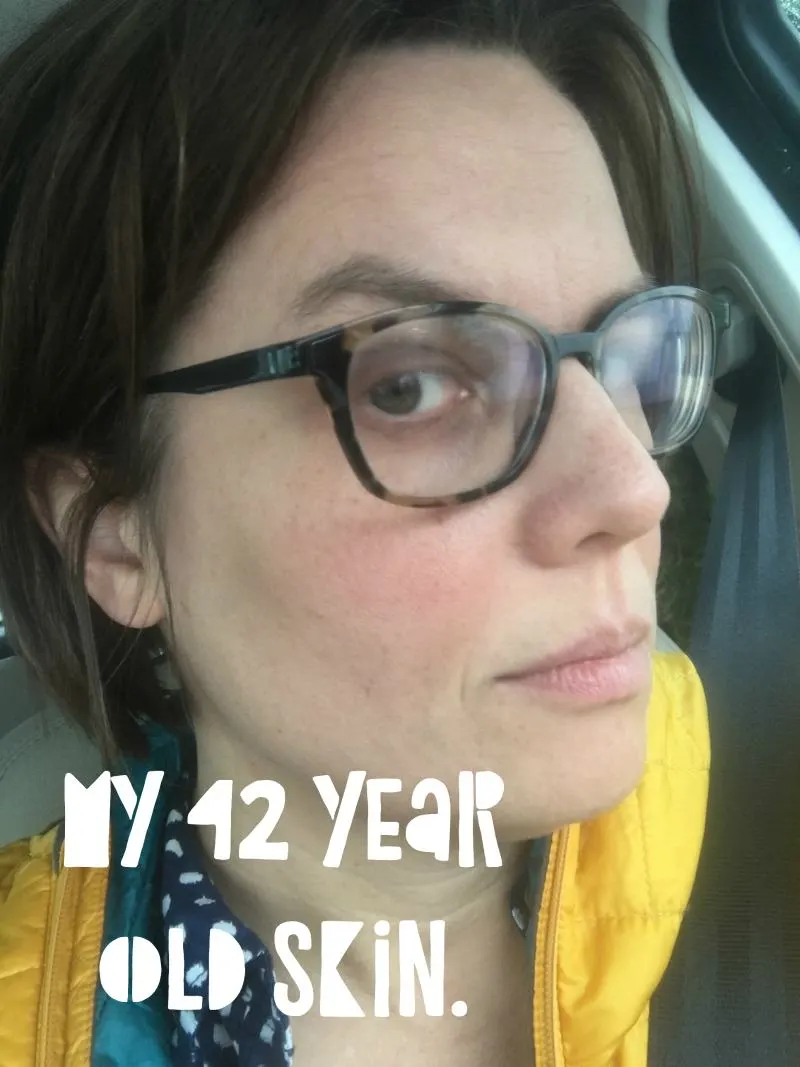
I never listened to these statements before I turned 40 years old. I’ve always felt that I had pretty good skin, but I also thought my non-drinking, non-smoking lifestyle would have a positive impact on my aging skin. And that part is true.
HOWEVER – I’m still over 40. And some of the natural outcomes of aging skin are inevitable regardless of how you choose to live your life (thanks genetics!). That’s when products that can do *something* for my skin become a little bit more interesting.
I’m a relatively skeptical person, so my interest in black soap resulted in the need do a little digging. I also knew I must try the product for myself before I recommend it to anyone else. I want to jump in and discuss the basics of African black soap before I dive into my test. Learn more about it below!
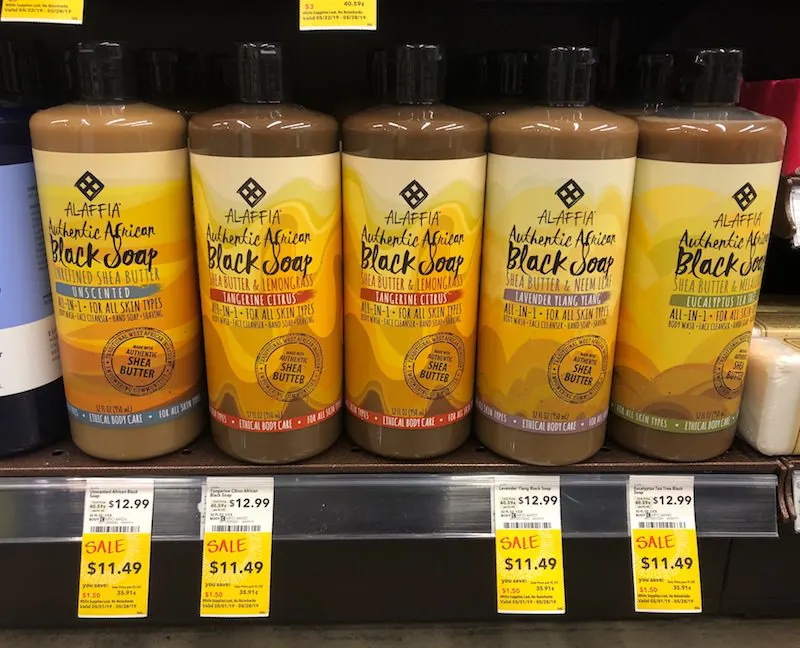
African Black Soap
Black soap originated in West Africa; Ghana more specifically. It’s known by multiple names, including Anago soap, Alata, sabulun salo, ose dudu (or Ossé Dudu), dudu osun, and ncha nkota.
African soap is made from five basic main ingredients: palm leaves, plantain ash, Cocoa pod leaves, palm oil, and shea butter. It is naturally fragrance-free (unless added) and alcohol-free. We’ll get more into that below.
The black soap recipe is quite simple, yet magical!
Black Soap Benefits
Black soap is a skin care product that is easy to apply and lathers quite nicely. The most important thing to note about African soap is that it has a lot of benefits. You can see most of them below and I’ll discuss them in more detail as well!):
- Cleanses Skin (great for sensitive skin!)
- Exfoliating
- Moisturizing
- Acne Fighter
- Reduction of Fine Lines, Wrinkles
- Evens Skin Tone
- Dark Spots
- Treats Eczema & Psoriasis
- Minimizes Scars and Stretch Marks
- Anti-Fungal Properties
- Anti-Inflammatory
Black Soap Ingredients
I briefly mentioned the ingredients in black soap above, but let’s go into them in more detail.
Palm Leaves
Sun dried palm leaves contain high levels of Vitamin A and Vitamin E – two important nutrients that your skin needs. Vitamin E is a strong antioxidant while Vitamin A increases your skin’s collagen production.
The leaves of palm also contain allatonin, found in shea butter. It’s an effective moisturizing ingredient – gentle and non-irritating. It is thought to help increase skin smoothness.
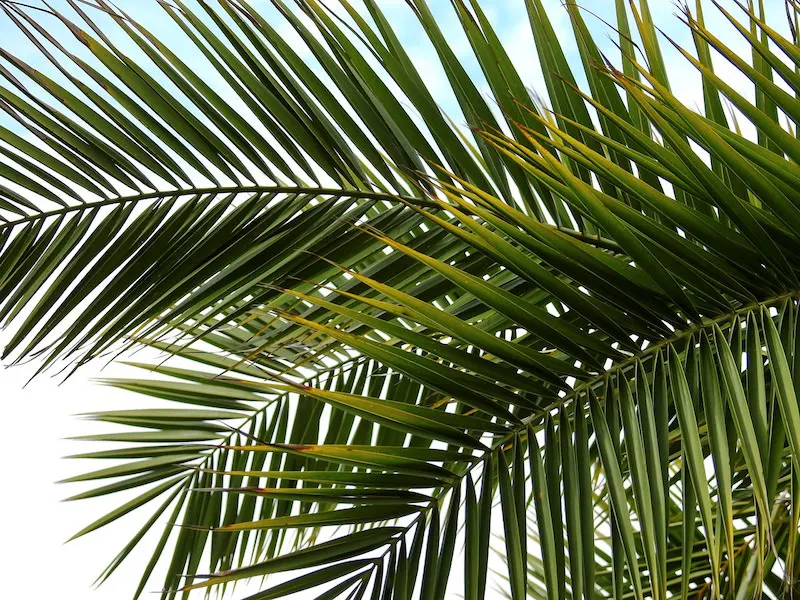
Plantain Peels
If you haven’t heard of plantains, they are similar to bananas (though a plantain it isn’t a fruit!). There’s a lot of good stuff in the plantains themselves, but especially in the leaves.
They contain high amounts of Vitamin A and Vitamin C, antioxidants, protein, thiamine, riboflavin, and potassium. The net of this ingredient is minimized scarring, relief from acne and rosacea, and quicker healing.
Cocoa Pods
Cocoa pods come from the cocoa tree and hold – wait for it – cocoa beans! The pods are simply the shells, and they have strong anti-inflammatory properties.
Palm Kernel Oil
Palm trees have seeds in addition to fruit, and palm kernel oil comes from the seeds. You might also see this referred to as sodium palm kernelate. It is typically used as a moisturizing surfactant. Palm kernel oil is high in lauric acid and has great anti-bacterial and antifungal properties.
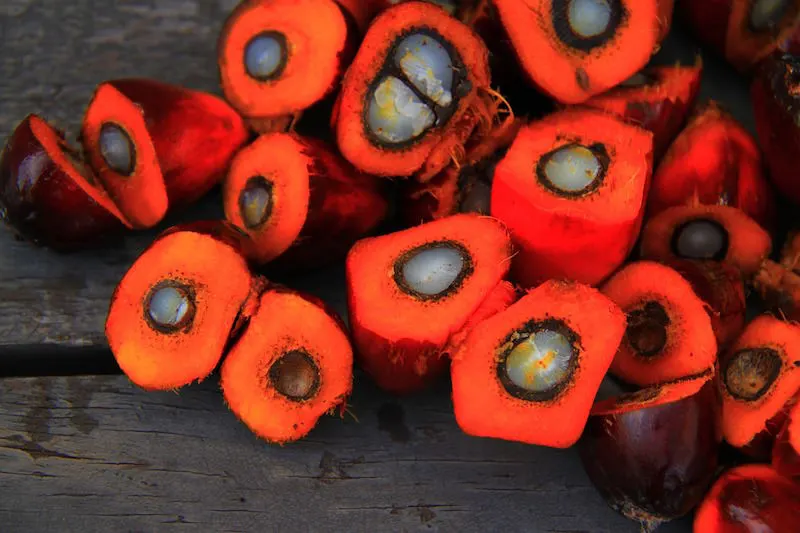
Palm Oil
This oil is derived from the fruit of the palm tree and is a natural source of vitamins A, C, and E. Vitamin E is especially prominent in this ingredient. Palm oil is also loaded with essentially fatty acids that are great for your skin.
Shea Butter
Who doesn’t love shea butter? And did you know that it comes from the fruit of a shea tree? I had NO idea.
Shea butter is rich with so many beneficial fatty acids as well as Vitamin A, Vitamin E, and Vitamin K. It helps improve the texture of your skin by repairing damaged tissue. It also boosts the body’s ability to produce collagen.
Coconut Oil
While this wasn’t mentioned in my original list of ingredients, it’s often included in black soap. Coconut oil cleans skin, moisturizes it, and also helps boost collagen production. It’s an all-around winner!
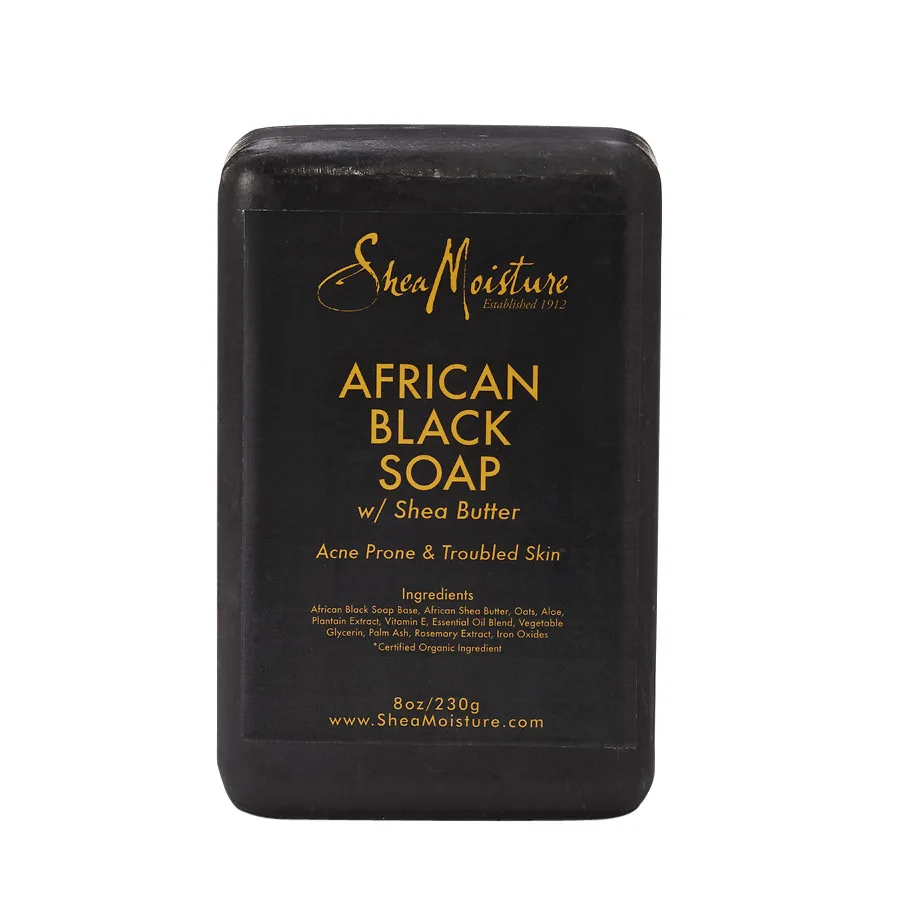
Uses for Black Soap
As I mentioned, African black soap is used on the face as a cleanser It can also be used as an all-in-one body wash (great if you have body acne), shampoo, and even shaving soap. It works well for razor bumps. In addition:
- Exfoliation – if this is your goal, I recommend unprocessed black soap bars. The raw ingredients mean a less smooth product, which helps make black soap a natural exfoliant.
- Dry Skin – my husband has psoriasis, and the liquid black soap works really well for this. You won’t get as much of the exfoliation benefits as a bar, but the moisturizing properties of shea butter are phenomenal.
- Excess Oil – Black soap helps balance skin’s natural oil production, which is nice because you can use it without removing necessary oils or adding any excess oil to the skin.
- Wrinkle Reduction – the shea butter and oils in black soap are perfect for plumping skin, thereby reducing fine lines and wrinkles. The exfoliating properties apply here too.
- Minimizing Scars and Stretch Marks – with lots of Vitamin E and shea butter, black soap *may* help minimize scars and stretch marks, as well as any associated redness.
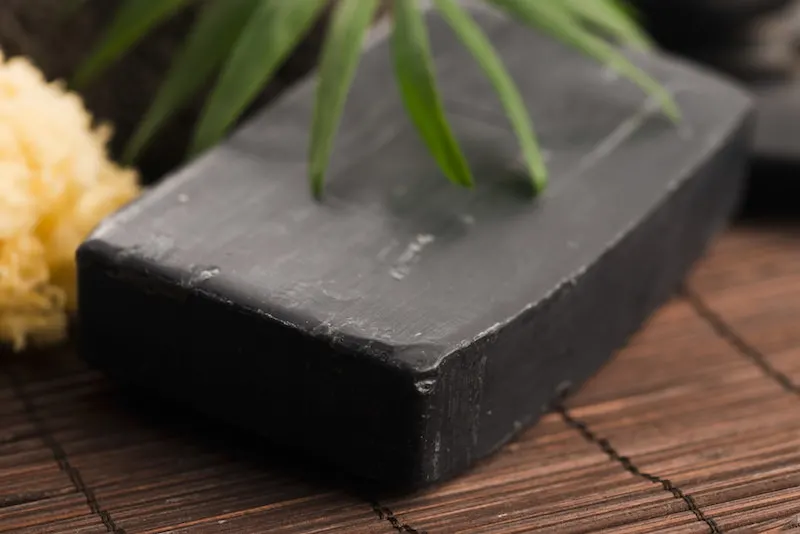
How is black soap made?
Different tribes in Africa have slightly different methods for making traditional African soap. Generally speaking, the plants and bark are harvested and dried in the sun. Then they are roasted in a kettle at a constant temperature to the point of charcoal. This constant temp is important to ensure the proper color, texture, and smell.
Other ingredients are added during roasting including water, oils, and shea butter. The mixture is stirred and then left for two weeks to cure properly. Then it’s formed into bars or liquid soap.
Is black soap good for skin?
Yes. It’s a gentle cleanser with antibacterial properties – great for those who are acne prone. It also gently exfoliates and allows important nutrients from moisturizers and serums to penetrate the skin.
Is black soap good for acne?
Yes. Acne is caused by hair follicles clogged with oil and dead skin cells, and black soap is a gentle exfoliant with natural antibacterial properties. It’s very calming to “angry” skin as well.
I have been an acne sufferer in the past and black soap works extremely well for me. It calms my skin but I also see that it repairs it. Acne scars fade faster when I use black soap.
Note: if you have cystic acne or are experiencing any pain, it’s best if you visit a dermatologist. Black soap is *not* a cure-all for all forms of acne! Sometimes a more serious condition requires more serious treatment. Please consult a professional if you have any concerns.
Does African black soap lighten skin?
No – it’s not going to change the skin tone you were born with. However, it will brighten skin by acting as a natural exfoliant. Black soap removes dead skin cells and allows moisturizers to better absorb (especially nutrients like Vitamins A & E). Your skin may appear brighter, but it won’t be lighter.
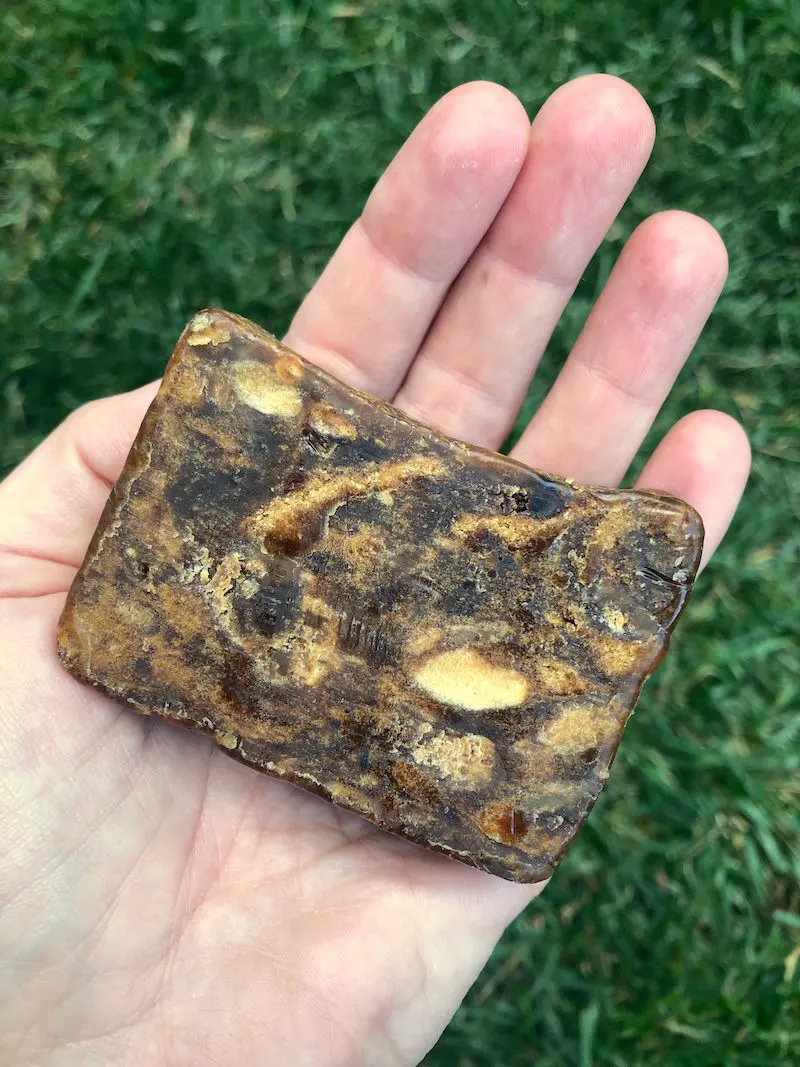
Can you use black soap every day?
Technically yes! But if you have sensitive, dry, or acne prone skin, I highly recommend starting out by using it once a day. You might want to try every other day depending on your skin type.
For me personally, it’s also important that I moisturize after use with an oil-free moisturizer. When I lived in Atlanta, it wasn’t as crucial with the humidity in the air. Now that I live in the PNW, I have to moisturize regularly (because when it’s not raining, it’s really dry!).
Forms of African Soap
There are two forms of African soap I’m familiar with – the liquid and the bar. Either one works, according to your preference. I go for the bar when I need more exfoliation, and the liquid when I don’t.
I typically like to purchase the 32 oz. Alaffia black soap (in whatever scent is motivating me at the time of purchase) and go with the liquid. Having said that, both the bar and liquid work well!
I will encourage you to purchase a 100% authentic black soap that is organic and comes from Africa. I’m not familiar with all brands, but it’s important to me to use a trusted brand – especially when it comes to the skin on my face. Alaffia is my favorite for black soap. There are other brands, so be sure to do your research when selecting.

Giving Back
This is an aside and doesn’t have anything to do with skin care, but I love that my black soap purchases help small business in Africa. I personally purchase from Alaffia as they are fair trade certified, non-GMO, and made safe (no humans or animals harmed). Alaffia specifically supports communities in Togo. You can learn more here.
How Did it Work for You?
So that’s the real point of this article, right? Have you tried this soap – and has it worked for you? Let me know in the comments!!
If you enjoyed this post, check out some of our other beauty articles:

Dove
Thursday 30th of December 2021
It has indeed improved the colour of my skin Nice article.
Kemi
Wednesday 6th of January 2021
Black soap according to history originated from Nigeria not Ghana. It is a product made by the Yorubas and it was taught to the Ghanaians and Togolese by the Yorubas who settled amongst them. Great article. I also learnt from here